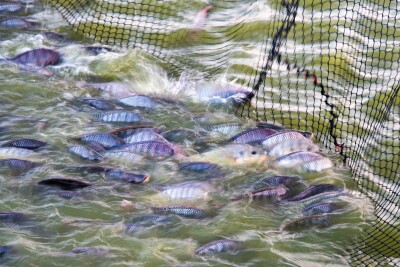Bluefin tuna have been severely depleted by fishermen, and the fish have become a globally recognized poster child for the impacts of overfishing. Many chefs refuse to serve its rich, buttery flesh; many retailers no longer carry it; and consumers have become increasingly aware of the environmental costs associated with the bluefin fishery.
But a group of scientists is now making the case that Atlantic bluefin may be more resilient to fishing than commonly thought — and perhaps better able to rebound from the species' depleted state. In a paper published Monday in the journal Proceedings of the National Academy of Sciences, the researchers suggest that fishery managers reassess the western Atlantic bluefin's population, which could ultimately allow more of the fish to be caught.
The 10 co-authors, most of whom are scientists with the National Oceanic and Atmospheric Administration, say they've all but confirmed that bluefin tuna spawn in an area of the Atlantic Ocean previously suspected but not known to be a breeding ground. Not only that; the tuna spawning in this area off the Atlantic Coast are much younger and smaller than the age and size at which it was previously believed the fish become sexually mature, according to the scientists.
Read the full story at NPR >>
Read more about bluefin tuna >>






